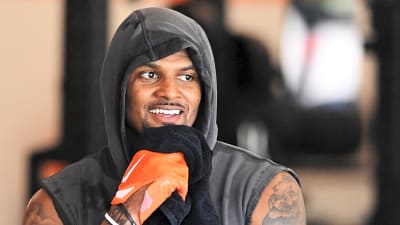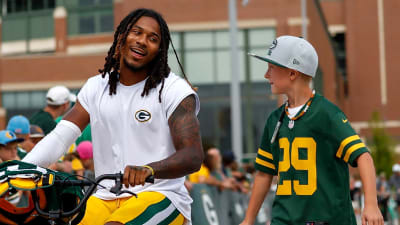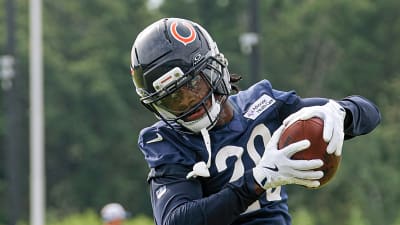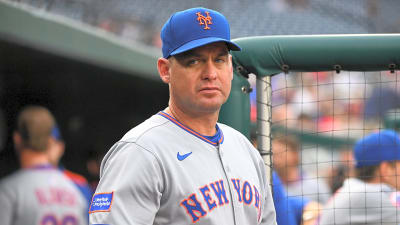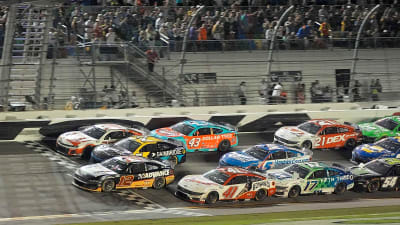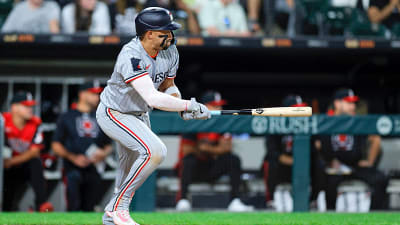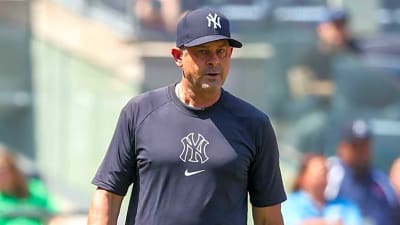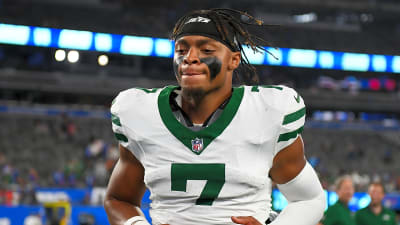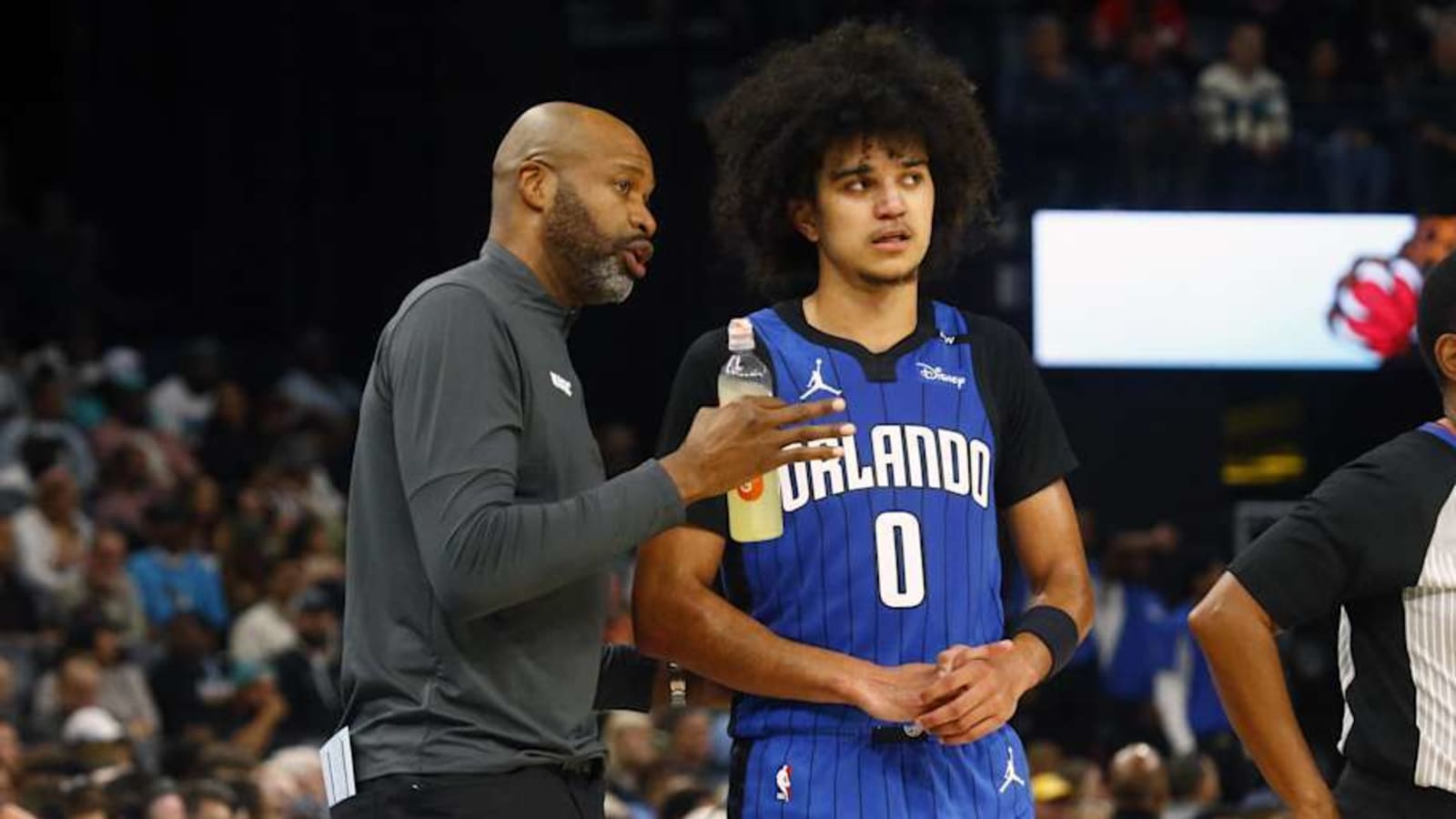
For the second consecutive season, the Orlando Magic were quiet at the NBA trade deadline, a source confirmed to Magic on SI Thursday.
The Magic, 25-27 and eighth in the East entering Thursday night's matchup with the Denver Nuggets, were one of three teams (Denver, Minnesota) to not make an in-season move during one of the most active and potentially consequential periods of player movement in league history.
*Minnesota traded Karl-Anthony Towns to New York for Julius Randle and Donte DiVincenzo in late September.*
It was just the second time since Jeff Weltman took over as the Magic's president of basketball operations in May 2017 that Orlando opted to stand pat.
In the previous years, here's a rundown of the mid-season moves made under his tutelage:
- 2018: Acquire a second-round pick (Jarred Vanderbilt, traded to Denver) from Phoenix in exchange for Elfrid Payton.
- 2019: Acquire Markelle Fultz from Philadelphia in exchange for Jonathan Simmons, a 2020 protected first-round pick (Tyrese Maxey) and a 2019 second-round pick (Carsen Edwards).
- 2020: Acquire James Ennis III from Philadelphia for a 2020 second-round pick (Paul Reed).
- 2021: Acquire Wendell Carter Jr., Otto Porter Jr. and two future first-rounders (Franz Wagner, Jett Howard) in exchange for Al-Farouq Aminu and Nikola Vucevic; acquire R.J. Hampton, Gary Harris and a 2025 first-round pick for Gary Clark and Aaron Gordon; acquire Jeff Teague and trade exception from Boston for Evan Fournier.
- 2022: Acquire Bol Bol, P.J. Dozier, a 2028 second-round pick and cash considerations to Boston for a protected 2023 second-round pick.
- 2023: Acquire Patrick Beverly and cash considerations from the Los Angeles Lakers and a 2024 second-round pick from Denver, traded Mo Bamba to Los Angeles Clippers as part of four-team deal.
- 2024: No trade made.
- 2025: No trade made.
Orlando has needs for perimeter scoring and playmaking. Even after a 130-point outburst Wednesday night versus Sacramento, the Magic offense ranks last in points per game (104.1), three-point percentage (30.6) and effective field goal percentage (50.4).
They're also bottom-five in offensive rating (107.3) and assist-to-turnover ratio (1.58).
After not making a player-for-player swap, the Magic will either need to find their solutions on the current roster or by other means of player acquisition.
Why the Magic didn't make a move
Injury struggles dampen expectations
Top stars and key rotational pieces alike missing time have not afforded the Magic many chances to see what they look like at full health.
Paolo Banchero, an All-Star a season ago, missed 34 games with a torn right oblique. Franz Wagner, his frontcourt running mate that ascended to All-Star trajectory in the season's first third, missed 20 games himself with a torn abdominal muscle of his own. Jalen Suggs, the pivotal third cog in the Magic's core, has missed 15 of the last 16 games.
Together, that trio has played just six of the Magic's 52 games. Orlando is 4-2 in those contests.
As a whole, Orlando players have missed 163 games due to injury or illness – six more than all of last year.
The roster continuity that Weltman and the Magic front office helped lead Orlando to a 47-win season and the fifth-seed in 2024, and they added Kentavious Caldwell-Pope as a significant free agent signing this offseason. Yet, there have been few opportunities to see what they could accomplish together.
To again reach the 47-win benchmark, Orlando must win 22 of its final 30 games. But the Eastern Conference may not require as many victories this season to be securely in the playoffs.
As of Thursday afternoon, the Magic are 1.5 games from the 6-seed. Reaching that benchmark would avoid Play-In contention. They are 4.5 games back of 4th-seed Indiana, and 3.5 games clear of Chicago in 10th.
If the Magic can stay healthy, there could be reason for them to believe to be looking up rather than down over the season's stretch run.
Offseason flexibility
Four Magic players currently under contract have a club option this offseason: Moe Wagner ($11 million), Gary Harris ($7.5 million), Cory Joesph ($3.4 million) and Caleb Houstan ($2.1 million).
Jonathan Isaac's contract drops in value from $25 million this season to just $60 million spread across four years.
Wendell Carter Jr. becomes trade-eligible this offseason. After signing a three-year, $58.6 million extension in October, he was not able to be included in trade talks this season.
In total, nine under-contract Magic players are set to make between $3.8 million and $21.6 million in 2025-26.
Draft capital
Orlando owns their own first-round pick in each of the next seven drafts, plus a 2025 top-5 protected first-rounder and a 2026 first-rounder that's the second most-favorable in a three-team swap with Washington and Phoenix.
They also own eight second-round picks in the next four years and 12 overall.
What could be next?
If Orlando were to make any roster additions this season, they could do so by way of the buyout market. Any move would need to be met with a corresponding one to clear a roster spot, as the Magic are currently at the limit of 15 rostered players.
The Magic do still hold an open two-way spot, but players can not be signed to two-way contracts after March 4. Two-way players are not eligible for the playoffs and can only play 50 NBA games in a season on said contract.
Thus, if the Magic wanted two-way guard Trevelin Queen to be eligible for the playoffs, a roster spot would need to be cleared for his contract to be converted. Queen has appeared in 22 games to this point.
The Magic opting not to make a move may be made in the interest of riding out this season with the new-look core, then re-assessing at the season's end.
Franz Wagner and Suggs' new contract extensions – each five years long and totaling $374.5 million in combined value – take into effect beginning in 2025-26, and Paolo Banchero becomes extension-eligible for a rookie max extension this offseason, which would take into effect for 2026-27.
A more established market for trade candidates around the league could materialize. At that point, Orlando, like any other team, would be more sure about the price they're paying in any transaction.
Orlando's young trio will become vastly more expensive in the coming seasons, and they have a number of assets that could be consolidated and packaged together to help bolster the core into the next echelon of contention.
The CBA's limitations on roster constructions become more severe the further over the luxury tax teams go. Orlando could be destined for a trip into the luxury tax for the first time since 2010-11.
For now, this is the Magic's team they'll go forward with. Any vast player movement transactions will have to wait for another day.
More must-reads:
- Is Cooper Flagg’s hype getting out of hand?
- Derrick Rose’s impact in Chicago goes way beyond basketball
- The 'Most NFL 1,000-receiving yard seasons' quiz
Breaking News
Trending News
Customize Your Newsletter
 +
+
Get the latest news and rumors, customized to your favorite sports and teams. Emailed daily. Always free!
